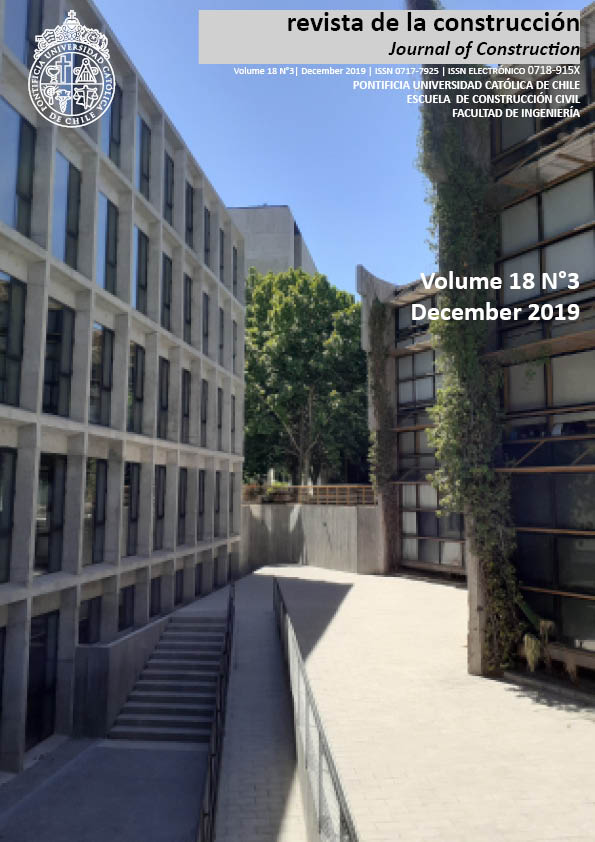Impact analysis of geotechnical occurrences in ECP projects cost control
DOI:
https://doi.org/10.7764/RDLC.18.3.418Keywords:
failure, regulations, cost control, rehabilitation, penalty feeAbstract
Engineering, procurement, and construction (EPC) contracts are the most widespread way to carry out the execution of complex projects. Under an EPC contract modality, the contractor must must complete the installation at a guaranteed price and by a specific date, while reaching the agreed level of quality and performance for the installation. Failure to comply with any of the above requirements usually results in the application of economic penalties. Therefore, the main problem of a fixed price EPC contract is that any unexpected problem will be reflected in the final economic result of the contract. There are three main problems that can endanger the final result: a) Unexpected failure that does not represent a time delay but involves the rehabilitation costs; b) Unexpected failure that endangers the facility delivery date and therefore involves a penalty fee; c) Erroneous selection of the involved regulations in the design of the project. Since the exposed problems are quite common, the aim of this paper is to give an approach, in economic terms, of the unexpected costs related to geotechnical issues. This analysis will be carried out using three real EPC construction projects. The selected examples will cover different perspectives: Case 1; the main cost is the execution of the rehabilitation. Case 2; the main cost is the penalty fee due to start up delay. Case 3; the cost depends on the applicable regulations.
Downloads
Downloads
Published
How to Cite
Issue
Section
License

This work is licensed under a Creative Commons Attribution-NonCommercial-NoDerivatives 4.0 International License.








